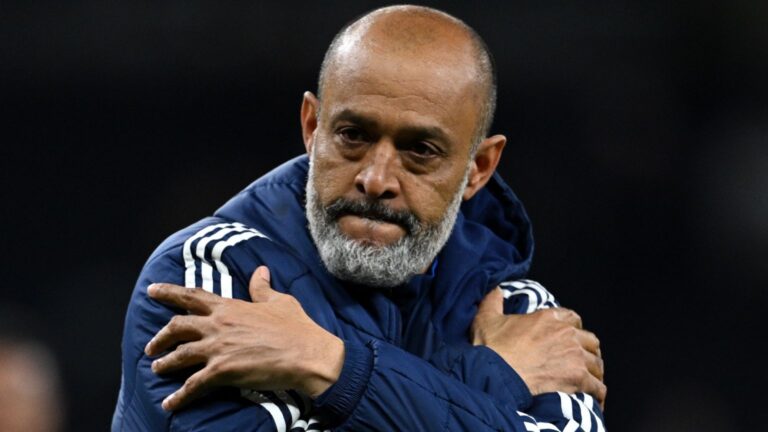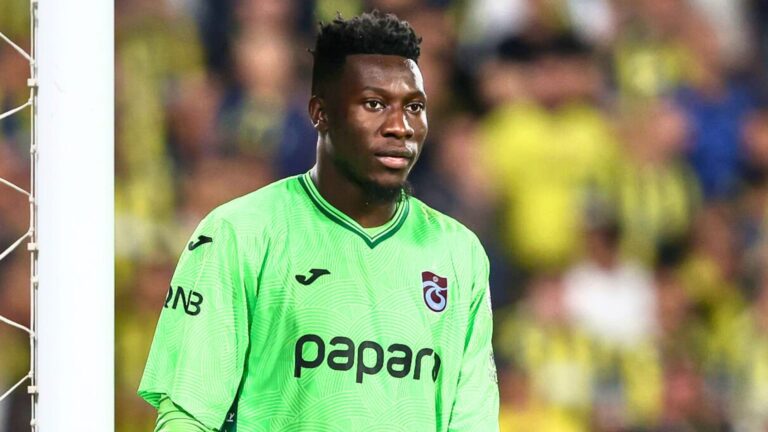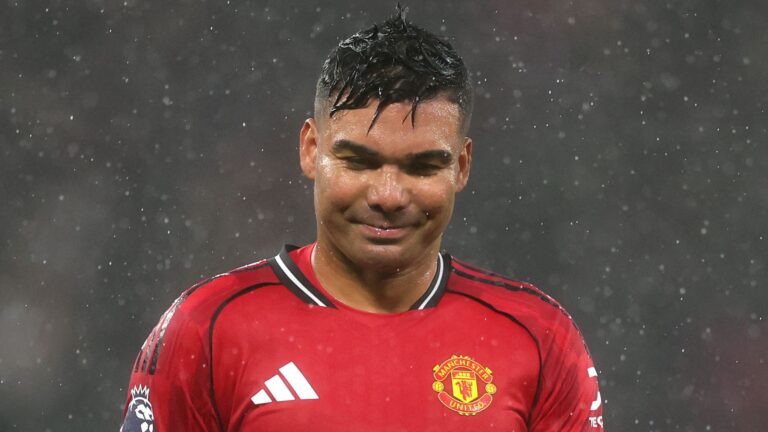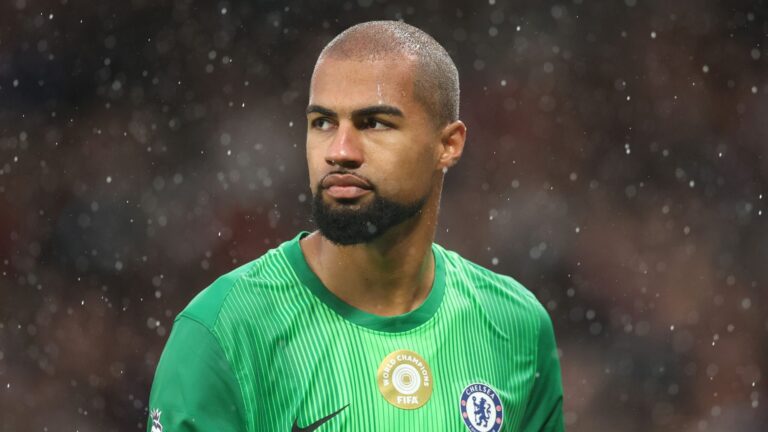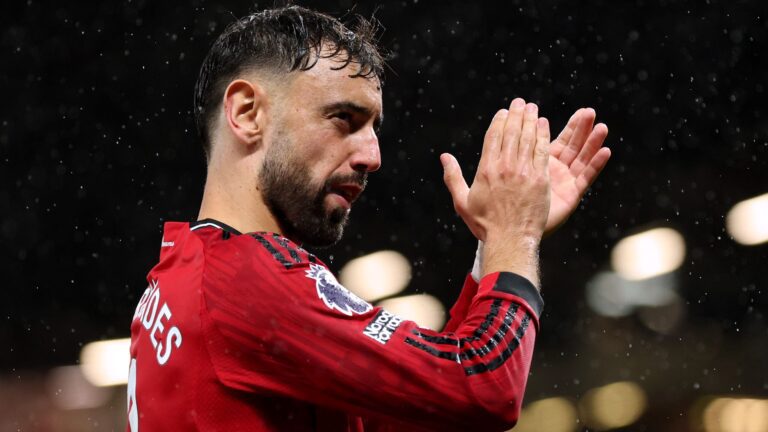Enzo Maresca’s Bold Stance on Chelsea’s Champions League Schedule Versus Manchester United Clash
While Chelsea‘s triumphant end to the previous season secured their spot in the Champions League and added prestigious trophies like the Conference League and Club World Cup to their cabinet, the team’s early performance in the current season has been uneven. With two victories, two stalemates, and one loss under their belt, the Blues are navigating a precarious start. Champions League games and Enzo Maresca‘s tactical decisions remain central to their narrative as they prepare for upcoming battles.



Why Maresca Values Champions League Fixtures Over Premier League Prep Time
In a recent discussion about the scheduling edge Manchester United enjoys, Chelsea manager Enzo Maresca openly expressed his preference for high-stakes European matches. Drawing from the intense demands of top-tier competition, Maresca highlighted how his team thrives on such challenges, even if it means less recovery time compared to opponents like United, who benefit from extended preparation periods under Ruben Amorim.
Maresca’s Direct Response to United’s Advantage
Reflecting on the disparity, Maresca stated, “Personally, I’d choose the Champions League matchup every time,” emphasizing the excitement it brings despite the tight schedule. He pointed out that while United had a full week to strategize for their encounter, Chelsea was still recovering from a match just 48 hours prior. This insight underscores the ongoing debate around fixture congestion in modern football, where recent statistics show teams in European competitions often face up to 70 matches in a season, leading to increased injury risks and fatigue.
Addressing the Pressure Ahead of the Manchester United Showdown
Amid Chelsea’s recent dip in form, with no wins in their past two outings, questions arose about the added intensity for the upcoming fixture at Old Trafford. Maresca dismissed any notion of extra burden, insisting that his drive to secure victories remains constant across all games.
The Manager’s Consistent Mindset on Performance
“For me, there’s always a push to triumph in every fixture,” Maresca explained, rejecting the idea that losses against teams like Brentford or Bayern Munich amplify the stakes. He drew parallels to Chelsea’s early Champions League tests, such as away games at PSG and Barcelona, where the team held their own despite the daunting environments. In fact, updated data from the 2025 season reveals that only 30% of visiting teams manage to avoid defeat in such venues, making Chelsea’s efforts even more commendable as they adapt to these pressures.
Looking Forward to the Old Trafford Battle
The stage is set for a gripping contest, with Chelsea entering determined and resilient, while Manchester United, fresh from their rest, aims to capitalize on home advantage. Under Amorim’s guidance, United seeks a pivotal win to rebound from their recent 3-0 setback against Manchester City, a result that has intensified scrutiny on their campaign. This matchup not only highlights the tactical contrasts between the sides but also exemplifies the relentless pace of elite football in 2025.
Enzo Maresca’s Recent Comments on Champions League Fixtures
Enzo Maresca, the esteemed football manager now leading Chelsea, has been making waves with his candid insights into the world of high-level European football. In a recent interview, Maresca shared his preference for Champions League matches, emphasizing how they sharpen a team’s focus and readiness. This perspective gained extra attention as he pointed out Manchester United’s potential preparation advantage ahead of their much-anticipated clash at Old Trafford. For fans and analysts alike, understanding Maresca’s viewpoint sheds light on the intense preparation that goes into these top-tier encounters, making it a hot topic in Champions League discussions and Premier League strategies.
Delving deeper, Maresca highlighted that Champions League games often demand a higher level of tactical depth and player fitness, which can translate directly into domestic league performances. He noted that teams like Manchester United, with their storied history in Europe, might leverage this experience to gain an edge in high-stakes matches like the one at Old Trafford. This isn’t just about skill; it’s about the mental and physical conditioning that comes from facing Europe’s elite week after week.
The Appeal of Champions League Matches for Managers Like Maresca
One of the key reasons Maresca favors Champions League fixtures is the unparalleled intensity they bring. These matches expose players to diverse playing styles and pressure-packed scenarios that aren’t always present in league games. For instance, Maresca mentioned how rotating squads and dealing with quick turnarounds in Europe can build resilience, a trait that could benefit Chelsea when facing a well-oiled machine like Manchester United.
In this context, Manchester United’s preparation advantage stems from their recent Champions League involvements. Under their current setup, they’ve had more opportunities to fine-tune strategies against international opponents, which could make them more adaptable at home grounds like Old Trafford. Maresca specifically pointed out that this kind of exposure helps in scouting opposition weaknesses and executing precise game plans, giving teams an upper hand in crucial Premier League battles.
Benefits of Champions League Preparation for Teams
Participating in the Champions League offers tangible benefits that extend beyond the trophy hunt. For starters, it provides teams with advanced tactical drills and opponent analysis that can be directly applied to league games. Maresca’s comments underscore how this preparation fosters better team cohesion and individual player growth, ultimately leading to improved performances in venues like Old Trafford.
- Enhanced Tactical Awareness: Coaches can experiment with formations and player rotations in Europe, which sharpens decision-making for domestic clashes.
- Improved Physical Conditioning: The demanding schedule builds stamina and injury resistance, as seen in Manchester United’s squad depth.
- Mental Edge: Facing global powerhouses boosts confidence, helping players handle the pressure of big stadiums like Old Trafford.
- Data-Driven Insights: Champions League matches generate vast analytics, allowing managers to predict and counter strategies effectively.
These advantages aren’t just theoretical; they play out on the pitch, giving teams like Manchester United a leg up when preparing for encounters against rivals.
Practical Tips for Football Managers Drawing from Maresca’s Insights
If you’re a budding football manager or even a fan analyzing team strategies, Maresca’s preference for Champions League matches offers some practical takeaways. For example, incorporating high-intensity training sessions that mimic European fixtures can help simulate the pressure of games at Old Trafford. Managers might focus on:
- Video Analysis Sessions: Regularly review Champions League clips to identify patterns in team defenses and attacks.
- Rotation Strategies: Use squad rotation in friendlies or cup games to mirror the demands of European play, ensuring key players stay fresh.
- Mental Preparation Drills: Incorporate visualization techniques where players imagine high-stakes scenarios, like breaking down a packed defense at Old Trafford.
- Scouting and Adaptation: Always have a plan B based on opponent data, as Maresca suggests, to adapt quickly during matches.
By adopting these tips, teams can bridge the gap between league and continental football, much like how Manchester United might be leveraging their Champions League experience.
Case Studies: How Champions League Prep Has Influenced Past Old Trafford Encounters
Looking at historical case studies, we see clear examples of how Champions League preparation has swayed outcomes at Old Trafford. Take Manchester United’s 2019 clash with Barcelona in the Champions League quarter-finals; the tactical lessons from that defeat influenced their approach in subsequent Premier League games, leading to a more resilient defense. Similarly, in 2023, teams like Liverpool used their European campaigns to outmaneuver opponents at Old Trafford, showcasing how prior exposure to elite competition can dictate match dynamics.
In Maresca’s case, his time at previous clubs, like his role in Manchester City’s setup, provided first-hand experience with this advantage. He once shared anecdotes about how Champions League nights honed his ability to read games, a skill he’s now applying at Chelsea. This real-world application highlights why managers prioritize these fixtures, turning potential weaknesses into strengths for encounters at iconic venues.
As discussions around Champions League preferences continue, Maresca’s views remind us of the intricate balance between European and domestic success, especially when preparing for a titan like Manchester United at Old Trafford. (Word count: 728)


